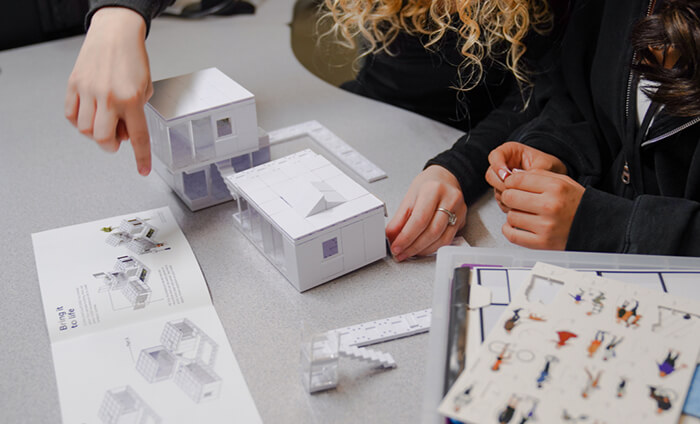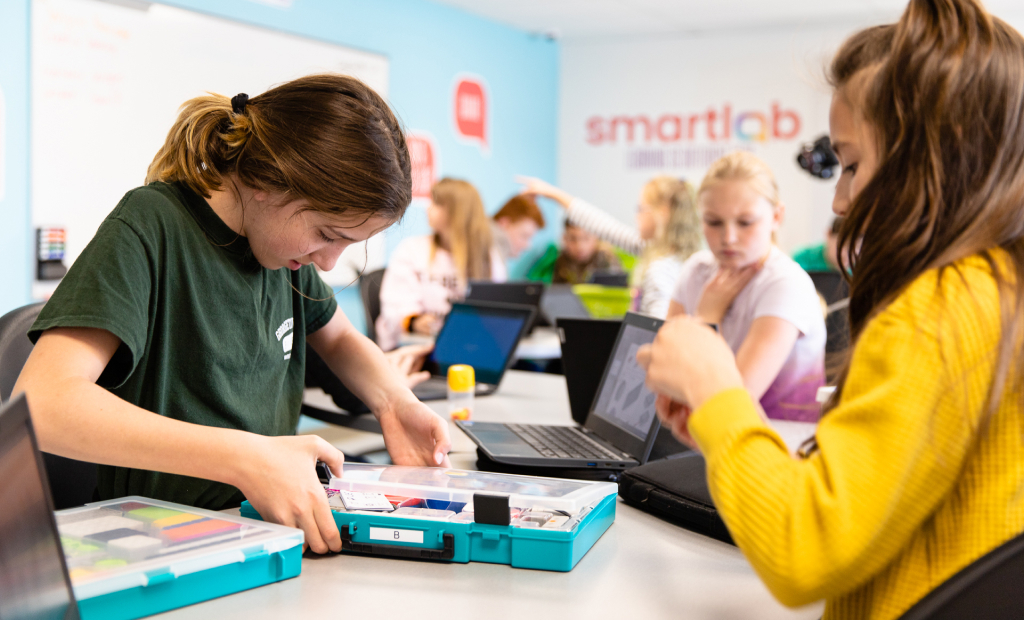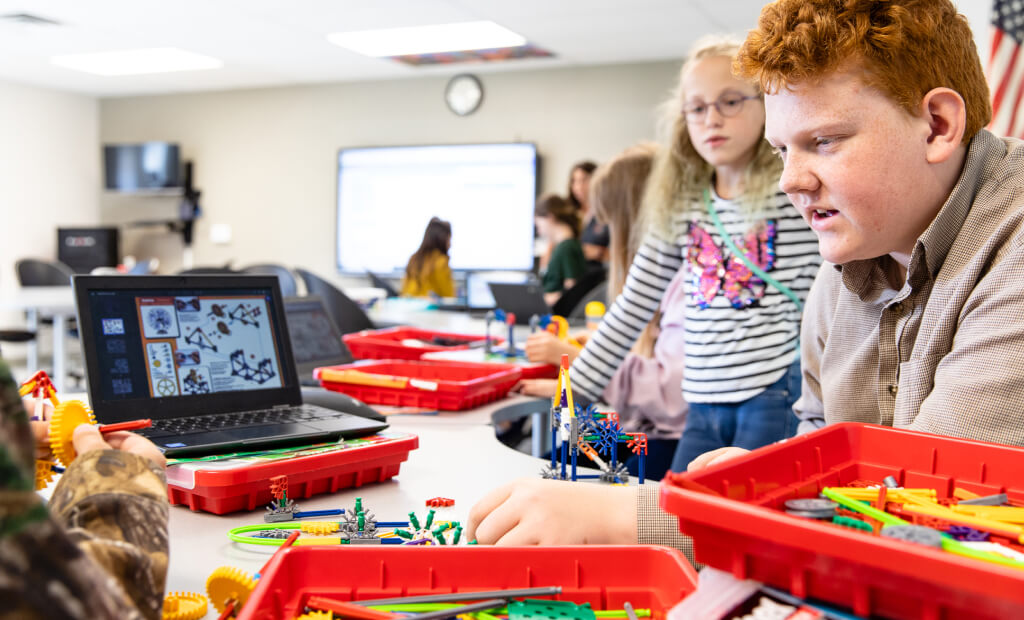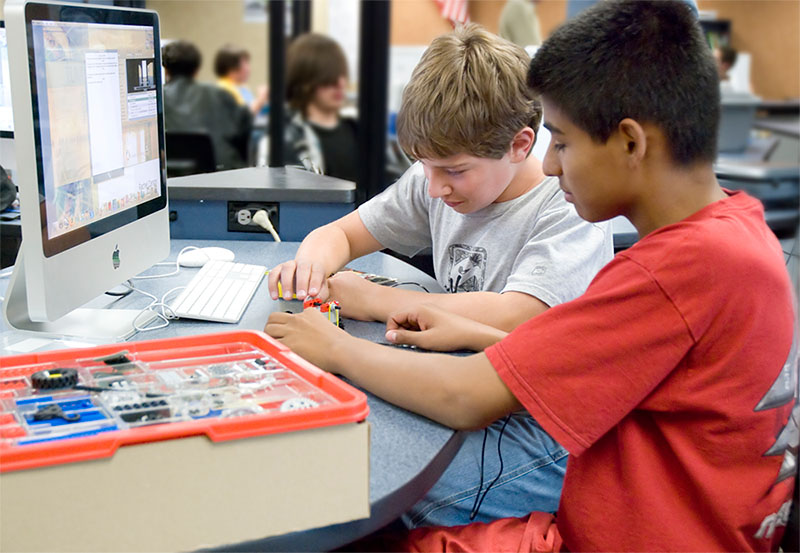STEM Education Companies & Organizations
Science, technology, engineering, and math (STEM) are increasingly critical for students’ learning and career development — but finding the right resources can be challenging. Fortunately, there are now hundreds of organizations that provide valuable resources, guidance, advocacy, and support for students learning STEM topics.
However, if you’re looking for a particular resource, it can be difficult to navigate the many STEM education companies out there. To help you out, we’ve compiled the following list to help you get started. Our categories are broken down by companies that:
- Concentrate on providing tools, materials, and equipment
- Provide mainly curriculum
- Are focused on professional development
- Have a speciality focus on a particular demographic
- Offer a comprehensive set of resources
We’ve attempted to categorize the companies by their main focus, but there is some overlap between categories. For example, several companies that mainly offer products do provide curriculum support, while others also offer professional development. Also, this isn’t an exhaustive list, as there are many other STEM companies out there, and new ones are regularly starting up.
STEM Products, Kits, Tools, and Equipment Companies
These are STEM companies that focus on providing the materials for STEM projects and activities. You’ll find a lot of hands-on products such as robotics kits, drones, and other physical technology. If you’re looking for materials to purchase for a classroom or project, consider starting here.
- Ozobot — Ozobot makes robots that support the teaching of coding and programming. Ozobots can be coded either online with Ozobot Blockly or screen-free with Color Codes. Intended for grades K–12.
- Scratch — Scratch is a coding community for children that offers a coding language with a simple visual interface. Students can use Scratch to create digital stories, games, and animations. Intended for students aged 8–16.
- Sphero — Sphero provides coding robots and design-and-build kits to teach STEM concepts and help students develop programming skills. Sphero also provides lessons and curriculum support. Intended for grades PK–12.
- PlayShifu — PlayShifu provides a selection of toys and digital games intended to teach STEM concepts to younger students. The toys come with companion apps for tablets and mobile devices. Intended for grades PK–5.
- RoboLink — Robolink makes robotics kits, including programmable drones and self-driving cars. They also provide curriculum and support for professional development. Intended for students aged 8+.
- Labster — Labster is a provider of virtual labs and science simulations. The 3D environment offers an immersive simulation where students can interact with advanced equipment, learn techniques, and perform experiments. Intended for grades 9–12.
- Birdbrain Technologies — Birdbrain Technologies provides robot kits and math tools, with a focus on promoting gender diversity and equality in STEM. They also offer professional development resources. Intended for grades K–12.
- GoldieBlox — GoldieBlox makes STEM-based toys designed to engage girls and introduce them to engineering and coding. The website also produces different video series that focus on women in STEM and STEM activities. Intended for students aged 0–10.
STEM Curriculum Companies
These are the companies that focus on offering curriculum guides, lesson plans, project outlines, and similar support for STEM courses. Some of the curriculum materials are meant to align with specific products, while others are more adaptable in their use. How you choose to use these materials should align with your district’s educational objectives.
- Google CS First — CS First is Google’s computer science curriculum intended to be used with the Scratch coding language. Includes a selection of one-hour lessons and multi-day units. Intended for grades 4–8.
- Learning Blade — Learning Blade provides a selection of missions made up of projects, lessons, and videos meant to contextualize learning and engage students. Lessons cover a range of STEM topics, including a 20-hour coding course meant to introduce students to text-based computer programming. Intended for grades 5–9.
- Mathspace — Mathspace provides adaptive math learning tools to engage students of all skill levels. With support for instructors, a library of interactive textbooks, and AI-powered insights, these math solutions are intended to be personalized and adaptive. Intended for grades 3–12.
- Cuemath — Cuemath is an online math education platform designed to provide visual math learning through 1-on-1 tutoring. Students receive a personalized learning path designed to align with their school progress. The 55-minute, online sessions are created and administered by expert math tutors. Intended for grades K–12.
- KnowAtom — KnowAtom supplies curriculum packages for a complete school year, including hands-on learning, assessment, online tools, and more. Each kit provides all the materials needed for its corresponding unit. They also provide teachers with access to professional development materials. Intended for grades K–8.
- Drone Legends — Drone Legends provides STEM curriculum and class materials around the use of drones. With a focus on project-based learning, problem solving, and coding, the student materials are designed as mission guides. They also offer professional development and learning materials that includes 5 drones. Intended for grades 4–8.
- InnovaSTEM — InnovaSTEM offers online coding workshops and summer camps based around app and game development, website design, and 3D animation in virtual reality. They also offer professional development opportunities for instructors. Intended for grades 1–12.
- Mastery Coding — Mastery Coding offers project-based learning curriculum, including coding and computer science courses and esports programs. They also offer lesson plans, tech support, and professional development for instructors. Intended for grades 3–12.
- Do It Yourself Academy — DIY Academy is self-paced online coding classes designed to make children future-ready for their careers. Programs include math, animation, robotics, 3D printing, and more. Intended for students aged 5–10+.
STEM Professional Development
These companies mainly offer courses, materials, workshops, and other forms of professional development for educators. Support can include guides on how to introduce STEM to learners, webinars, and access to unique or proprietary resources.
- PBL Works — PBL Works offers online and in-person project-based learning (PBL) workshops, courses, and services for educators. They offer resources and services to help educators implement PBL curriculum, especially in the service of Black and Brown students.
- MS TEALS Program — The Microsoft Technology Education and Learning Support (TEALS) program helps teachers learn to teach computer science by pairing them with industry volunteers and proven curricula. The program provides ongoing training, CS teaching resources, and a network of support for five standard high school course offerings.
- Invent.org — The National Inventors Hall of Fame (NIHF) provides professional development workshops to teach skills in support of inquiry-based and project-based learning. NIHF offers both virtual and in-person workshops for 5–25 participants that can be customized to accommodate your district’s unique plans.
- The STEM Connection — The STEM Connection is an Indiana nonprofit that provides STEM summer camps and field trips to outdoor learning sites. They offer a series of Educator Empowerment webinars that provide details and guidance on how to incorporate STEM activities into the classroom.
- NASA — NASA offers educator training and similar professional development opportunities for instructors to bring space exploration into the classroom. Workshops and conferences show how to integrate NASA missions, education resources, and unique high-quality STEM content into hands-on learning experiences.
- ISTE — The International Society for Technology in Education (ISTE) is a community of educators that provide practical guidance, evidence-based professional learning, virtual networks, and other resources for purposes of using educational technology in the classroom. The focus of ISTE is on supporting the instruction of digital citizenship, STEAM in education, and computation thinking.
STEM Equity Initiatives
These are companies that offer an array of tools, equipment, curriculum, and professional development with a focus on supporting certain areas or demographics, such as women in STEM. Their focus is on their mission, which can be promoting equity in technology or preparing underrepresented students for college and career readiness.
- Edlyft — Edlyft provides academic support, mentorship, and guidance in computer science for women who identify as Black, Native, and Latin. They offer academic support, peer mentorship, and exclusive networking opportunities within a supportive community of peers and mentors.
- Ignite Worldwide — Ignite stands for Inspiring Girls Now in Technology Evolution and is dedicated to achieving gender equality in STEM. Ignite offers workshops, virtual and in-person panels, field trips for educators, volunteers, and students looking for more opportunities within STEM fields.
- Black Girls Code — Black Girls Code is dedicated to introducing Black and Brown students to more computer programming opportunities. They offer CODE Clubs, Summer Camps, and in-person opportunities to teach web design, game design, app design, and robotics.
- Latinas in STEM — Latinas in STEM is a foundation created to inspire and empower Latina students in the primary and secondary grades, especially in underserved communities, to pursue STEM careers. They offer K–12 student and parent outreach programs, college student support, and professional development for educators.
STEM Lab Companies

These are companies that provide a wide variety of resources that encompass everything a school or district might need. They not only provide curriculum, kits, tools, and equipment, but also professional development resources and support.
- BlocksCAD — BlocksCAD is an education technology company that creates tools that help students engage with STEAM topics. The BlocksCAD platform is a cloud-based 3D modeling tool that teaches math, computational thinking, and coding concepts through visualization and 3D printed models. They offer standards-aligned lesson plans, teacher support, and project management tools. Intended for grades 2–12.
- zSpace — zSpace provides STEM and career and technical education support through their experiential learning platforms. They offer hardware, software, standards-aligned content, services, and support for instructors and administrators to establish a zSpace classroom, lab, or media center. Intended for grades K–12.
- Wonder Workshop — Wonder Workshop provides support for educators to teach coding and problem-solving skills to elementary school students. The platform includes virtual coding robots, curriculum, professional development, and supporting apps. Intended for grades K–5.
- KinderLab — KinderLab provides research-based robot kits to young children. Their KIBO robots are designed to be programmed without screen time. They offer kits that include teacher training and professional development, curriculum, workbooks, and other resources. Intended for grades PK–2.
- SmartLab — SmartLab is a turnkey STEM lab system for schools, designed to handle the curriculum development, installation, facilitator training, and ongoing maintenance and updates to implement standards-aligned project-based learning. SmartLab Learning Environments give students the tools to make decisions, solve problems, and manage complex tasks.
Every SmartLab is unique, a SmartLab representative will assist you in selecting the right solution, designing your space, and managing the project so you can focus on your learners. We not only install your custom designed space, we provide rigorous, hands-on professional development, and long-term instructional coaching for educators.
SmartLab Learning Programs are intended for K-12 education, in both public and private schools. If you’re interested in planning your own SmartLab, reach out to us for more information or schedule a visit to take a first hand look at a SmartLab in action.





